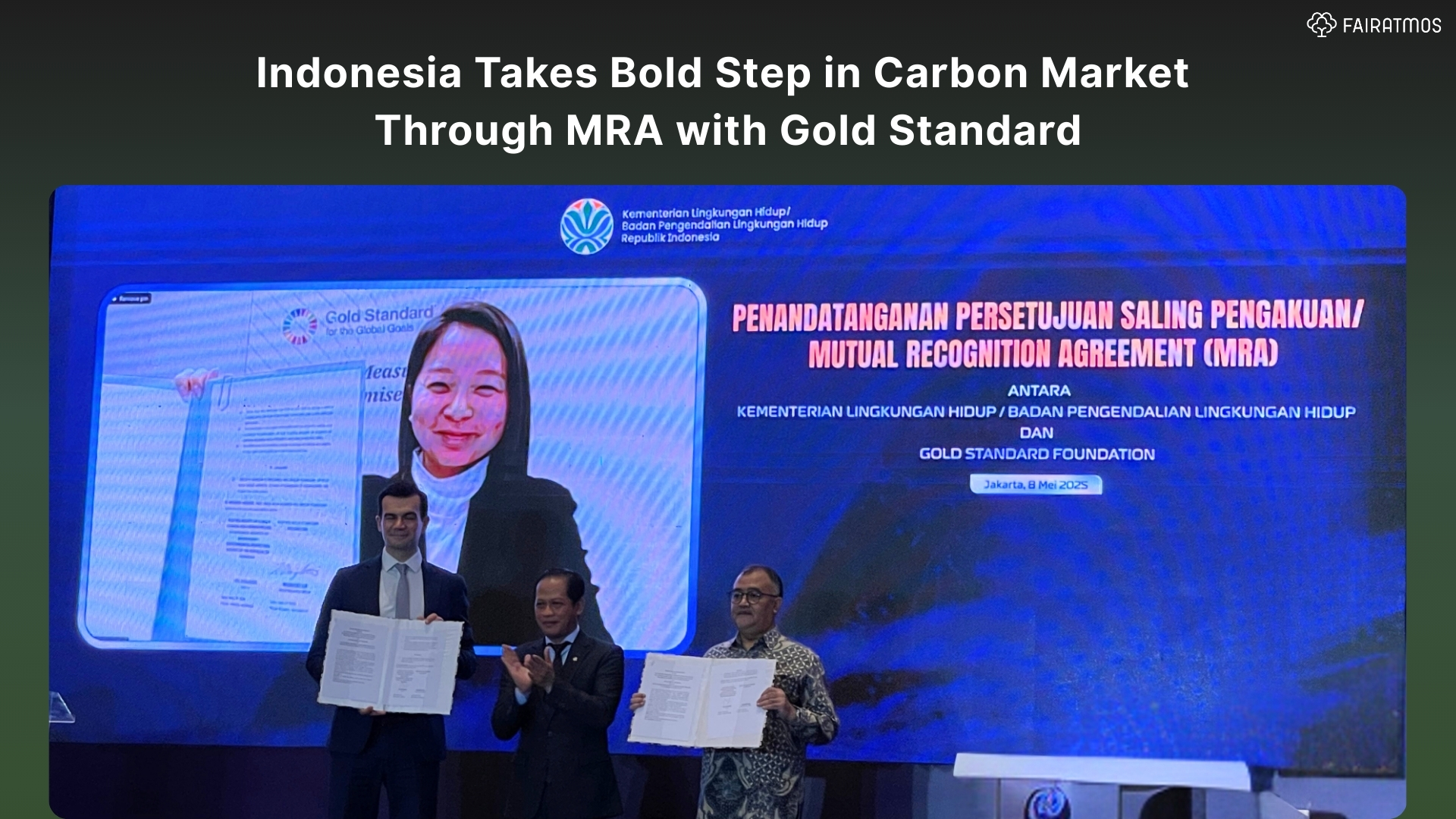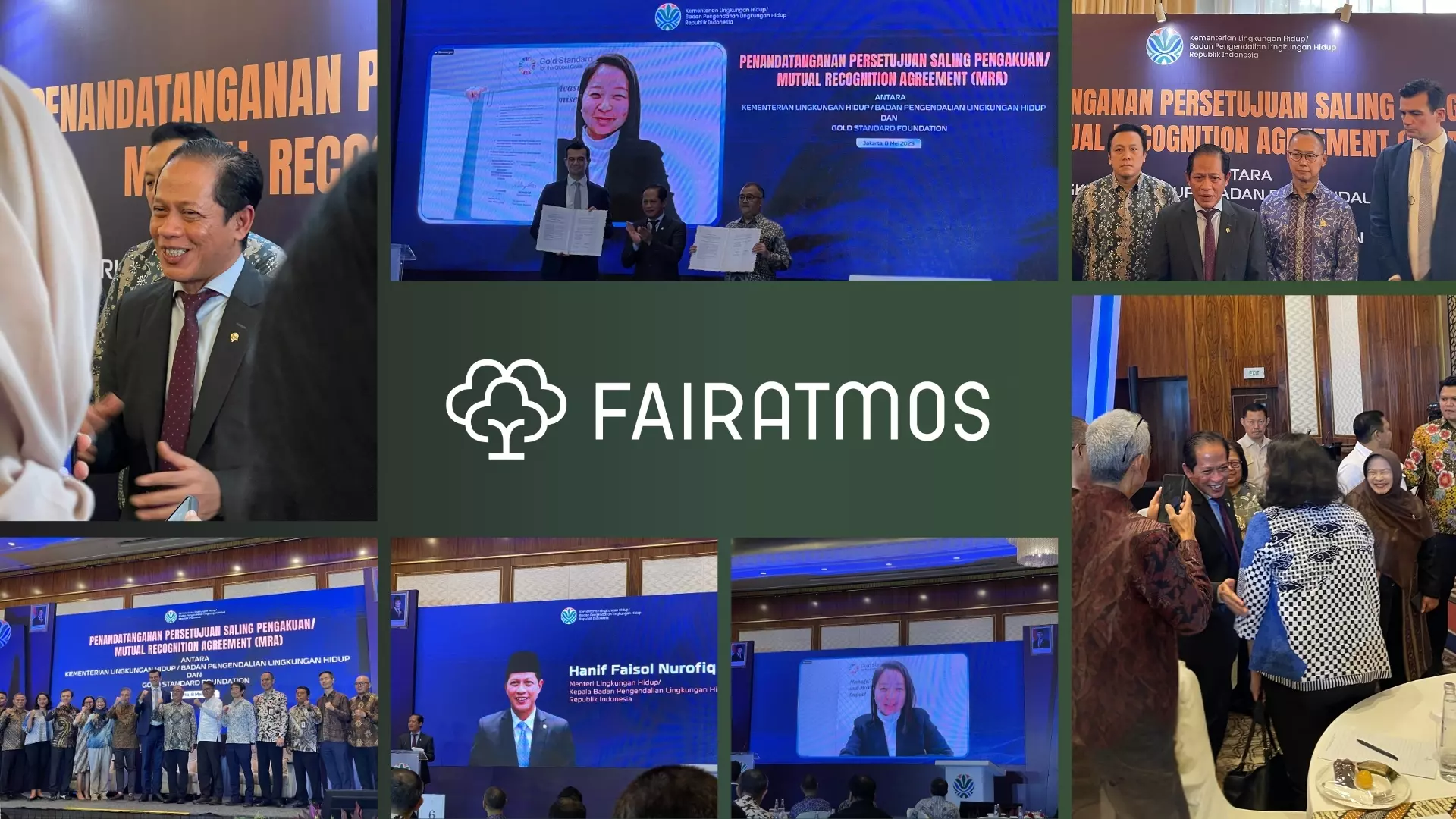Driving Carbon Integrity: Indonesia Formalizes MRA with Gold Standard
News

Jakarta, May 8, 2025 — Indonesia has reached a significant milestone in its climate leadership journey with the signing of a Mutual Recognition Agreement (MRA) between the Ministry of Environment of the Republic of Indonesia and the Gold Standard Foundation. The signing ceremony, held at the Four Seasons Hotel Jakarta, marks a strategic step toward expanding Indonesia’s access to the global voluntary carbon market.
The MRA was formally signed by Margaret Kim, CEO of Gold Standard, and Ir. Ary Sudijanto, M.S.E, Deputy for Climate Change and Carbon Economic Governance at the Ministry of Environment. This agreement signals Indonesia’s deepening commitment to international carbon trading, environmental integrity, and market transparency.
Indonesia’s Natural Advantage in the Carbon Market
With its vast tropical forests, peatlands, and mangroves, Indonesia possesses one of the world’s largest carbon sequestration potentials—making it uniquely positioned to lead in the trade of high-integrity carbon credits.
“With our natural advantage, the price of carbon credits from Indonesia should range from $80 to $100 per ton,” said H.E. Hanif Faisol Nurofiq, Minister of Environment of the Republic of Indonesia, who witnessed the MRA signing ceremony.
In his keynote remarks, H.E. Hanif also underscored Indonesia’s climate leadership and the importance of international cooperation: “The future is not just a dream — it is something we must shape together.”
This vision supports Indonesia’s push for premium carbon credit pricing, reinforcing the nation’s dedication to climate justice, ecological preservation, and the global demand for nature-based solutions with measurable impact.
Strengthening the Voluntary Carbon Market Through Global Recognition
The MRA with Gold Standard significantly enhances the credibility and marketability of Indonesian carbon credits by aligning project validation and verification processes with both national regulations and international standards. It does not replace existing protocols but instead complements domestic frameworks, ensuring that environmental sovereignty is preserved while promoting international recognition.
The MRA offers several strategic advantages for Indonesia’s voluntary carbon market:
-
It opens wider access to international carbon markets, allowing Indonesian projects to attract more global buyers and financing opportunities.
-
It reinforces environmental safeguards, ensuring all carbon offset projects meet rigorous standards of integrity and sustainability.
-
It integrates seamlessly with the Sistem Registri Nasional (SRN), Indonesia’s national carbon registry, aligning international recognition with domestic oversight.
-
It streamlined the process while enhancing the credibility and integrity of carbon projects verified by either both national and Gold Standard frameworks.
By bridging local governance with global standards, this agreement sets a strong foundation for market transparency, climate finance mobilization, and long-term investor confidence in Indonesia’s carbon market.
Stay Updated with Fairatmos
Curious about how the MRA between Indonesia and Gold Standard works? Stay tuned—our next article will break it down for you. Follow Fairatmos for the latest insights on Indonesia’s carbon market, evolving policies, and innovations in nature-based climate solutions.


